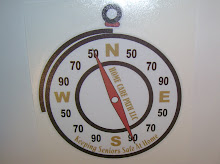On Wednesday June 29, 2011 The United States 6th District Court Of Appeals in Cincinnati Ohio rules the U.S. Congress does have the authority to require all U.S. citizens to have health insurance. The initial summary stated "We find that the minimum coverage provision is a valid exercise of legal power by Congress under the Commerce Clause".
The Provision (Congress has the authority to require Americans to obtain health insurance starting 2014) is central to the Patient Protection and Affordable Care Act, passed in 2010.
The part of the new health care law being challenged involves an amendment to the internal revenue code that taxes citizens who do not have a valid pay source (health insurance) for being treated by a medical doctor in a clinic, hospital, or nursing home.
The argument against states the United States Government cannot declare a citizen as a user of health care service (clinic, hospital, nursing home) just to regulate behavior through a commerce clause. By not participating (economic inactivity) Congress does not have the power to regulate under a commerce clause. A person should be able to purchase health care service only when needed.
A similar example is auto owners are required to pay for auto insurance. Not all auto owners will have vehicle damage requiring repair. Auto owners who suffer an unfortunate accident should be the only ones who pay money to the garage body shop and mechanics.
The argument for states everyone will need medical services at some point in their lives and therefore is either a current or future participant in the health care delivery system market and therefore subject to taxation. The citizen with no valid pay source cannot be left to die on the hospital entrance.
The U.S. 6th Circuit Court Of Appeals in Cincinnati Ohio stated far from inactivity, the minimum coverage provision regulates individuals who are in the aggregate, active in the health care market, because of two unique characteristics of the market. One virtually everyone requires health care services at some unpredictable point. Two individuals receive health care services regardless of ability to pay.
This legal ruling puts the Patient Protection and Affordable Care Act on a forward moving path to serve the citizens of the United States. Home Care Path encourages readers to follow this legislation as it unfolds.
Subscribe to:
Post Comments (Atom)

No comments:
Post a Comment